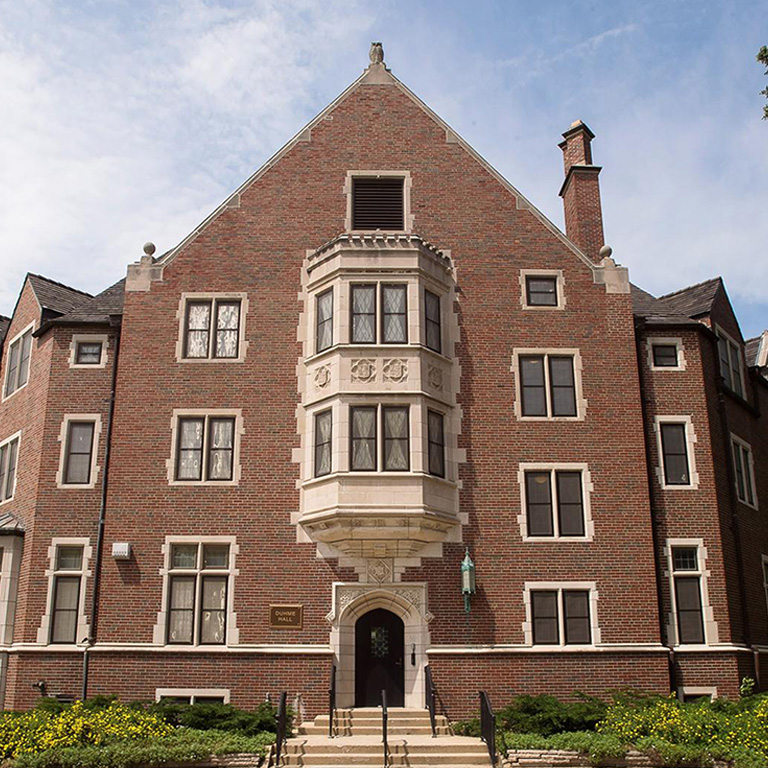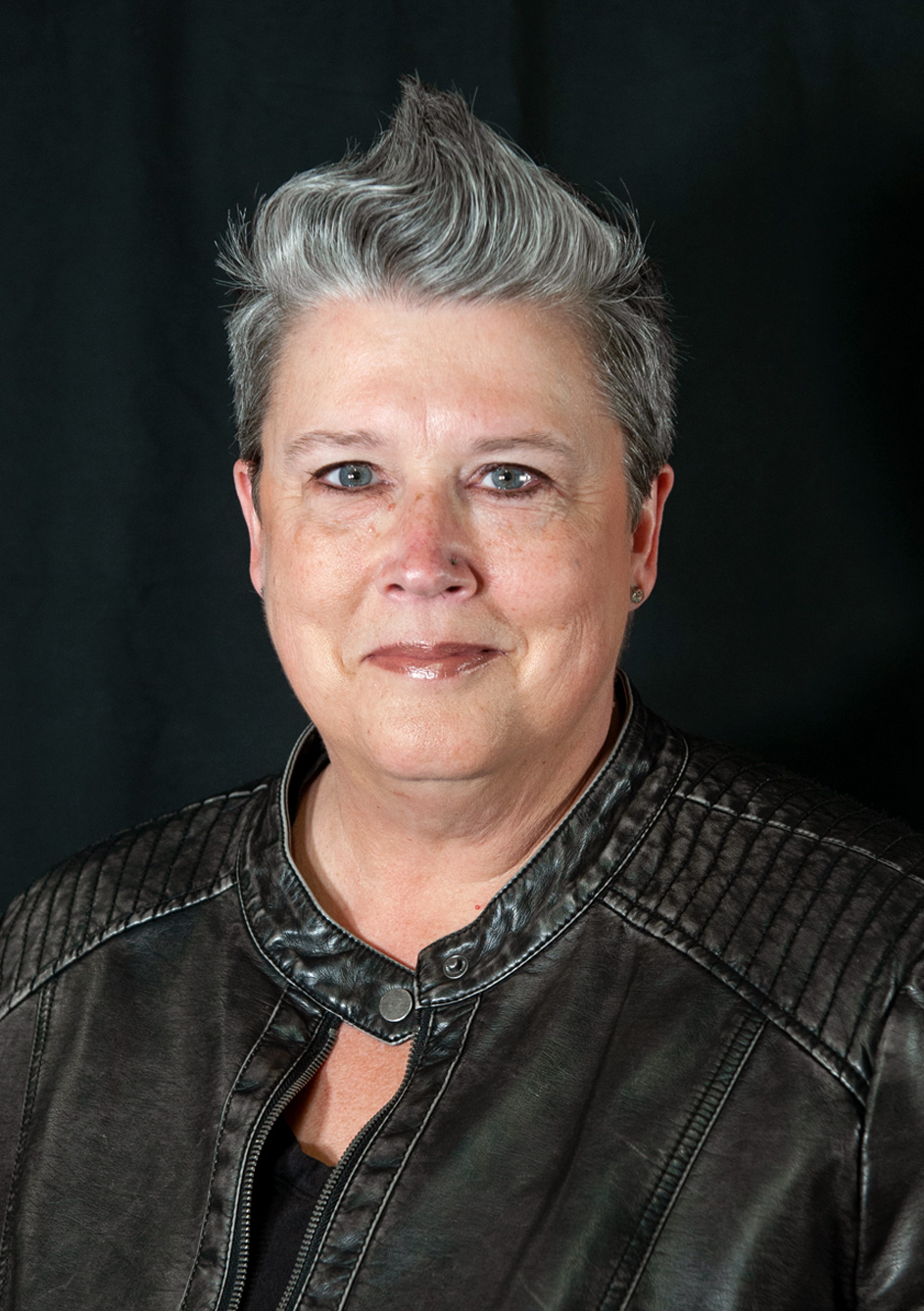CARE Provides Network of Support for Boilermakers

Boilermakers who have experienced interpersonal violence can receive support and connect with resources to help with the healing process through the Center for Advocacy, Response & Education (CARE).
“We are a safe place to come to,” says Juanita Richey, director of CARE. “We’re here to advocate for students, listen and talk them through their situation, help them know their rights and direct them to any resources they may need.”
CARE provides free and confidential advocacy services to students who have experienced interpersonal violence such as stalking, relationship violence, sexual exploitation and sexual violence. CARE provides non-judgmental and focused services to empower survivors to make informed decisions that help them heal.
CARE is located in Duhme (Windsor) Hall, Room 139, 205 N Russell St. To visit CARE, enter through the door on First Street and proceed down the hallway to the left. CARE is open Monday through Friday, 8 a.m. – 5 p.m. Staff are available 24/7 via a confidential hotline, 765-494-2273.

Students do not need an appointment to access CARE services and staff are available for walk-ins. Students can also make an appointment here. An initial appointment typically takes one hour.
“During an initial appointment, we’re talking through what students’ reporting options are with the police or with the university,” Richey says. “We’ll talk with the student about their mental health, whether they’re connected or want to be connected with resources and then we can make recommendations based on what the student needs.”
Thanks to financial support from the Office of the Provost, CARE has recently added staff to support two crucial elements of CARE’s mission – prevention of interpersonal violence and advocacy for students who have experienced it. In addition to providing support in these areas, new staff have helped serve students by ensuring that someone is always available if an immediate need arises.
Lila Jerger, a student support specialist, focuses on advocacy. Advocacy work typically entails a confidential discussion with the survivor with an emphasis on connecting them with appropriate resources – if that’s what an individual wants. These can include academic accommodations, such as excused absences, extensions on assignments and rescheduling exams; counseling sessions with an appropriate therapist at Counseling and Psychological Services (CAPS); community protection or university no-contact directives; or medical attention, including free STI testing, preventive medications and/or emergency services.

“I’ve had students come in a couple of days after something happened and they’re still processing what happened,” says Jerger. “Maybe they haven’t come to a conclusion about how they want to label what they’ve experienced, but they need someone to talk to and that’s what we’re here to do – we’re here to help them process what they’ve experienced in a confidential space, validate their feelings and experience, and then help them determine what they may want to do. We tell them everything that is available to them without forcing them to take action if they’re not ready yet. We are here to put the power back in their hands so they can make the decision that’s best for them.”
A new aspect of Jerger’s work involves visiting cultural centers and religious organizations on campus to hold advocacy hours. During these visits, Jerger or another member of the CARE team is present to answer questions and make students aware of CARE resources. Jerger hopes to implement activities to connect with students during future visits.
Educational workshops and connections with student organizations form the root of CARE’s prevention efforts on campus. CARE offers free prevention programming to any Purdue-affiliated organization or course. Four workshops, which engage the campus community in discussions about topics such as identifying interpersonal violence, bystander intervention, survivor support and CARE services, are facilitated by staff and educational ambassadors and range from 20 minutes to an hour in length. Interested organizations can schedule a workshop by filling out a request form.
As part of its prevention efforts, CARE is also contacting student organization leaders to share resources. Shie, a prevention programming specialist, notes that CARE workshops can benefit students personally and professionally.
“This program is incredibly useful in areas beyond interpersonal violence,” Shie says.
“When you’re talking about boundaries and consent, these concepts apply to social situations and respecting boundaries when people say they don’t want to do something.”
Student educational ambassadors (EAs) form a critical piece of education and prevention efforts. CARE boasts a team of approximately 30 EAs who deliver workshops and help spread awareness through tabling events. EAs must complete 40 hours of training, which includes role-playing, education and team building.

Shie is an alumna of the EA program who now serves as its coordinator. One of her goals is to expand the program beyond tabling and presenting to include opportunities to participate in focus groups, administer surveys, collect feedback, market CARE services and assist with daily CARE operations. Shie’s connection to her experiences as a student helps fuel her passion and ideas for the evolution of the program.
“I gave so much to the EA program as an undergrad,” Shie says. “I was always the one going to my other organizations to see if we could have CARE come do a workshop or get involved with an event. I love being able to turn around now and implement some of the changes I’ve thought about over the years.”
Students interested in the educational ambassador program can fill out a program interest form. Interviews will take place during the spring semester and a portion of online training will be assigned to be completed during the summer.
CARE received a boost in its ability to execute events when it was awarded a BIG Give grant from the Purdue Parent and Family Connections Advisory Board. CARE used the funds to enhance program offerings in its Connection to Healing series, which included yoga, meditation, spirituality, discussions on well-being, a succulent planting activity and more. CARE partnered with campus organizations such as Physical Facilities and Recreation & Wellness to offer these events.
“I wanted CARE to be able to offer opportunities for students to connect with different ways to experience healing outside of just participating in therapeutic intervention,” Richey says. “We have so many different resources available on campus for students to explore and wanted to create spaces for students to understand the positive impact that yoga, meditation, movement, art, nature, music and spirituality can have in one’s healing journey.”
Another way in which CARE has engaged students is through a “Green Flags” Valentine’s Day card-making series. Students are encouraged to write messages that promote positive behavior in relationships to send to their peers. More than 500 students participated in the last event.
“We had great feedback on it last year,” Richey says. “Students commented that they were glad that we could help them think about what it means to have a healthy relationship."
"So often, our focuses are on helping students who have experienced stalking, relationship violence, sexual harassment or sexual exploitation, but it’s also important that students learn how to recognize a healthy relationship.”
A new event students can participate in is an art show for survivors and allies, scheduled for April 24. The exhibit will provide opportunities for students to share encouraging messages and promote healing. Information on the event will be shared in the coming weeks.
CARE provides free and confidential advocacy services to students who have experienced interpersonal violence such as stalking, relationship violence, sexual exploitation and sexual violence. CARE provides non-judgmental and survivor-focused services to empower survivors to make informed decisions that help them heal. As part of its mission, CARE develops student leaders to assist with campus-wide prevention education.
 .
.